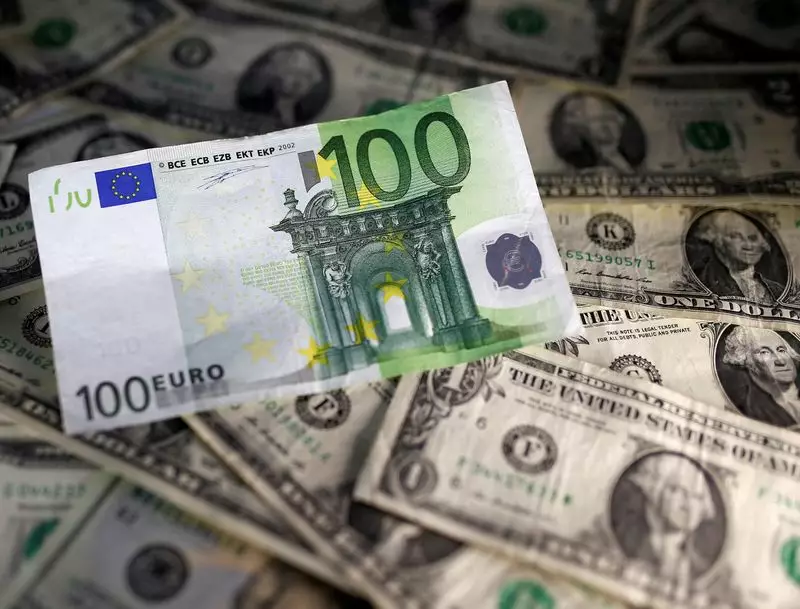Economic landscapes are continually evolving, shaped by political events, regulatory environments, and market sentiments. The recent upheaval in France, marked by the collapse of the government, has raised significant concerns about the euro, the currency of the European Union’s powerhouse. As worries mount over France’s political stability, the cryptocurrency Bitcoin has experienced a meteoric rise, surpassing the $100,000 mark for the first time. This juxtaposition of declining fiat confidence and surging cryptocurrency valuations provides a fascinating view of the current financial climate.
The fall of the French government has introduced a new layer of uncertainty into the European economic narrative. With French lawmakers narrowly approving a no-confidence motion directed at the current administration, concerns regarding governance and legislative gridlock have escalated. ING economist Charlotte de Montpellier articulated these sentiments, suggesting that ongoing political strife significantly hampers business and consumer confidence. The potential for prolonged leadership vacuums raises flags over France’s ability to address its colossal budget deficit effectively.
As the euro trades within a narrow band close to its recent two-year low against the dollar, traders are keenly aware of the implications of France’s political crisis on broader eurozone stability. The failure to establish a robust government may inhibit necessary fiscal reforms, aggravating existing economic challenges. With the European Central Bank (ECB) poised to respond with anticipated rate cuts, market watchers are now questioning how effective such measures will be in alleviating the pervasive uncertainty spawned by the crisis.
Conversely, Bitcoin’s recent rally illustrates a striking divergence within financial markets. Surpassing the $100,000 threshold is not merely a number; it is a beacon of renewed investor confidence in cryptocurrency amidst shifting regulatory landscapes in the United States. Analysts attribute this surge to expectations of a friendlier approach to cryptocurrencies under Donald Trump’s leadership, leading investors to reassess their risk profiles.
Kyle Rodda, a senior financial market analyst at Capital.Com, emphasizes the possible continuation of this upward trajectory, citing diminishing regulatory risks and an increasing preference for non-fiat assets. The perspective that cryptocurrencies like Bitcoin serve as a hedge against geopolitical uncertainties and fiscal instability has cemented their appeal among investors during turbulent times. This makes it increasingly plausible for Bitcoin’s value to sustain its positive momentum as traditional currencies falter under political pressures.
Looking towards Asia, the South Korean won portrays another facet of the regional economic challenge. The instability noted in South Korea, following President Yoon Suk Yeol’s controversial declaration and subsequent withdrawal of martial law, has further strained confidence in the won, leading it to its near two-year low against the dollar. While the South Korean finance ministry’s commitment of significant market stabilization funds aims to restore confidence, the resulting political turbulence has raised alarms over both domestic and international ramifications.
Simultaneously, the Japanese yen has shown tentative strength as traders debate the likelihood of an interest rate hike by the Bank of Japan. With ongoing economic indicators suggesting a mixed outlook, such policy shifts would play a crucial role in shaping regional monetary climates.
Across the Pacific, the Federal Reserve remains under scrutiny as it navigates its monetary policy amid fluctuating economic data. Although Federal Reserve Chair Jerome Powell has alluded to a stronger-than-anticipated economy, indicators suggest a slowdown in the services sector, complicating the path forward for rate cuts. The growing anticipation of a rate cut highlights investors’ confidence in continued easing, amidst fears of potential unemployment spikes evidenced in forthcoming non-farm payroll data.
As the dollar index hovers amidst various currency exchanges, the interconnectedness of global markets becomes clear. Stability in one region often precipitates shifts elsewhere, illustrating the complex web of financial relationships. For instance, fluctuations in the eurozone may challenge the dollar’s standing, creating ripple effects felt in emerging markets as well.
The current market dynamics reflect a significant interplay between political uncertainty and the burgeoning appeal of alternative currencies like Bitcoin. As traditional economic indicators oscillate with political events, especially in Europe, investors are inclined towards assets perceived as more stable or promising. The European financial landscape is precarious, yet the surge in Bitcoin illustrates the timely emergence of decentralized currencies as viable alternatives, allowing market participants to mitigate exposure to fiat currency volatility. The interplay of these elements underscores the increasingly complex nature of global finance where risk and opportunity coexist amid prevailing uncertainties.

